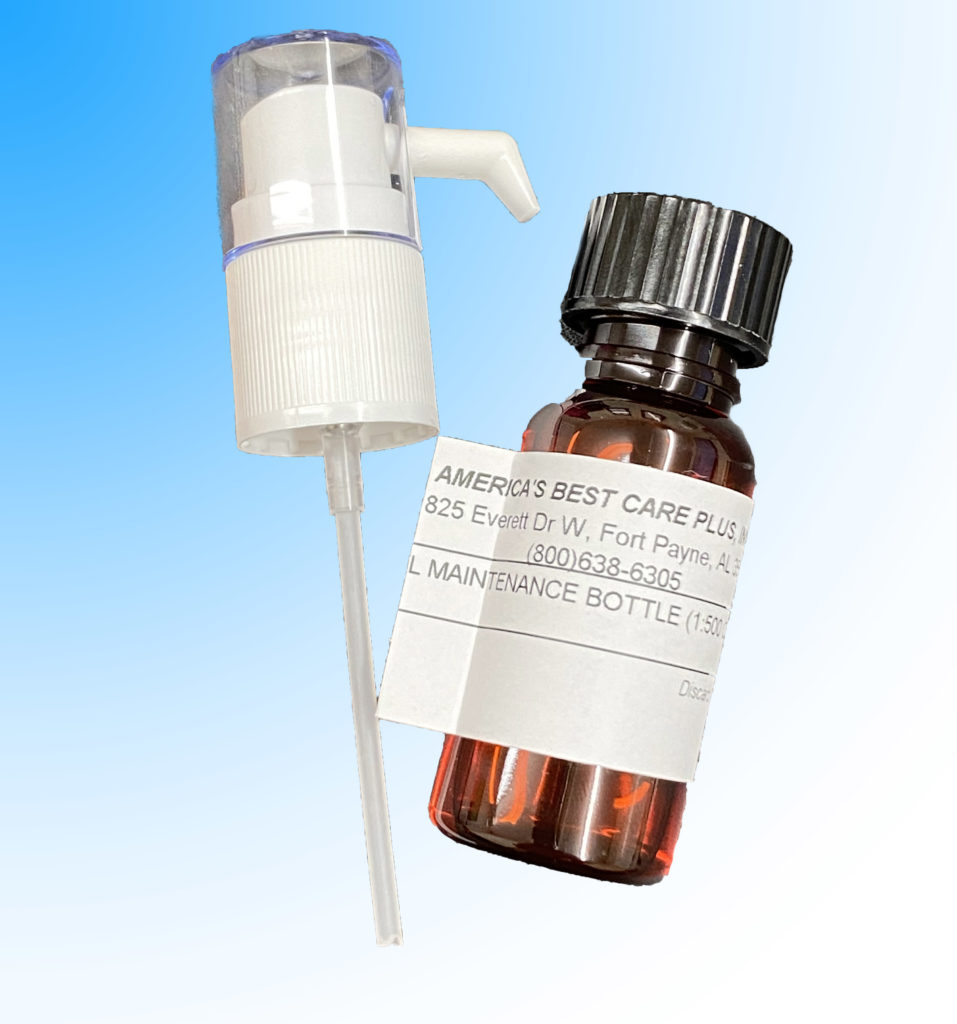With America’s Best Care Plus getting started on sublingual allergy drops is as easy as A-B-C.
Why choose sublingual allergy drops?
Antihistamines and other medications may take the edge off of your allergy symptoms, but they don’t address the underlying allergic disease. (Stop the pills and the symptoms return!)
For lasting results, you need drops from America’s Best Care Plus. They are safer than allergy shots and far more convenient since they can be taken in the comfort of home.

How do allergy drops work?
Sublingual allergy drops contain extracts of common pollens and other allergens. The drops absorb into the bloodstream through special cells in the mouth. As you take the drops daily under the tongue, they help your body develop an immunity to allergens so that it will stop overreacting to them in ways that lead to troubling symptoms.
In addition to pollen allergies, physicians can prescribe sublingual immunotherapy drops for dog and cat allergies as well as food allergy treatment (including milk, wheat and nut allergy treatment).
ABC Plus can help improve allergic disease – one drop at a time.
To get started please request an Allergy Packet to provide to your physician by filling out the form below. You may also choose to receive a version of this information via text or email.
Request an Allergy Packet
Allergy Drops Advantages
*Each patient is unique, and individual results may vary.
1Ciprandi G, Marseglia GL. “Safety of Sublingual Immunotherapy.” Journal of Biological Regulators and Homeostatic Agents 2011 Jan-Mar
2Rienzo VD, Minelli M, Musarra A, Sambugaro R, Pecora S, Canonica WG. “Post-marketing survey on the safety of sublingual immunotherapy in children below the age of 5 years.” Clinical and Experimental Allergy 2005, 35:560-4
At least one out of every five Americans has some type of allergic disease.
Are you one of them?
Allergies result from a dysfunction of the immune system. When the body encounters harmless antigens in the environment (pollen, mold, pet dander, etc.), it should simply ignore them. But sometimes, the immune system mistakenly perceives the antigens as threats and overreacts in ways that lead to troubling symptoms.

